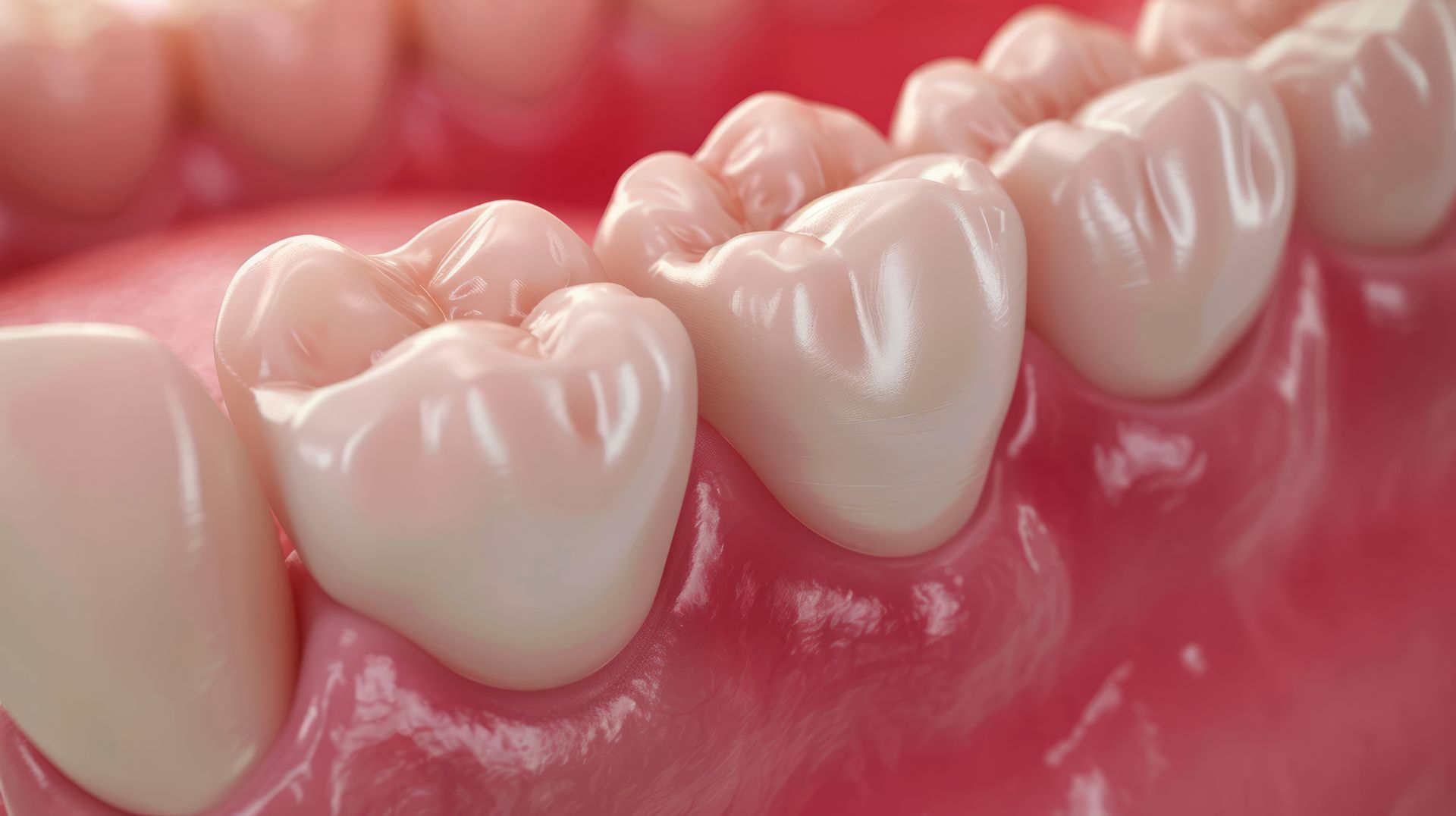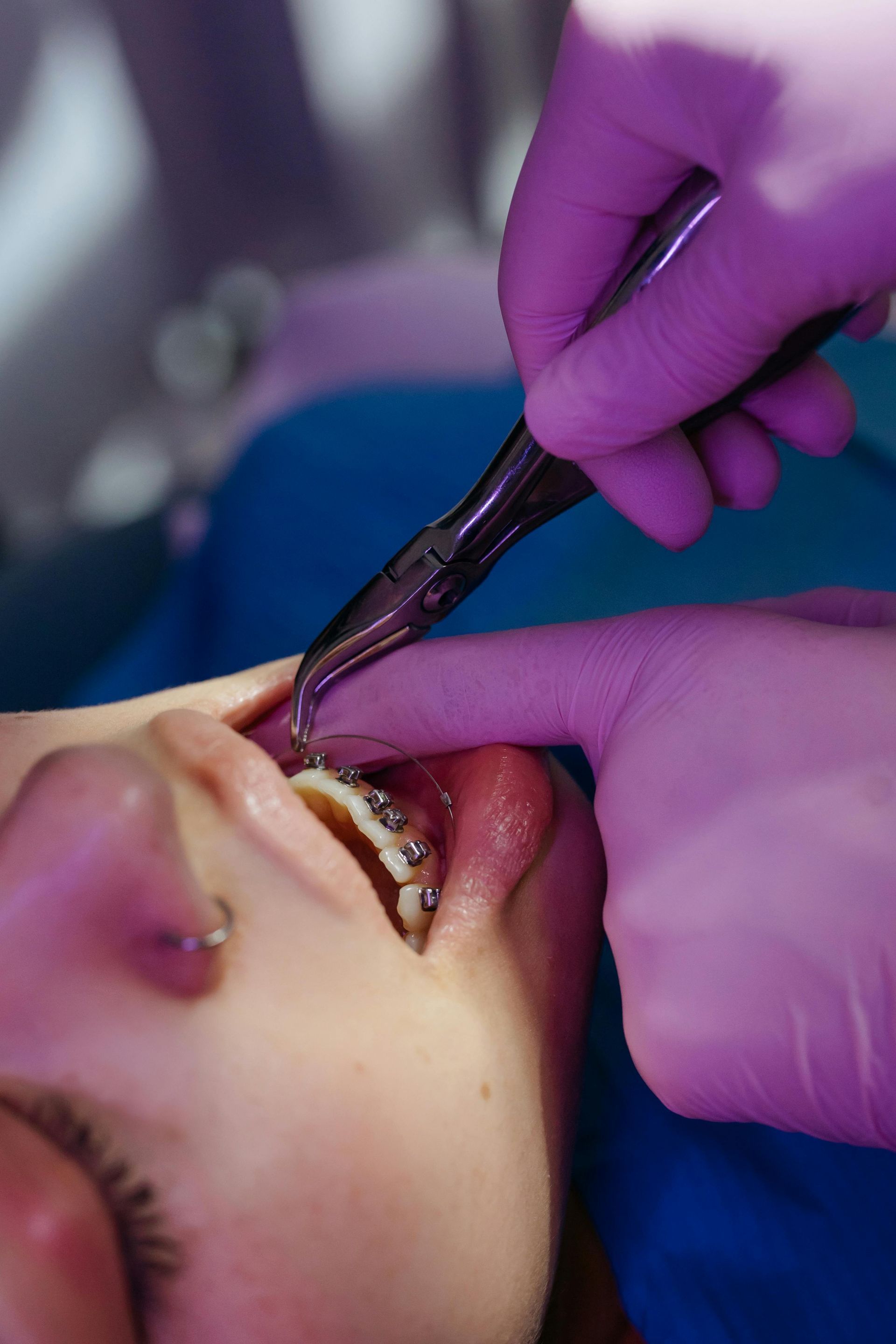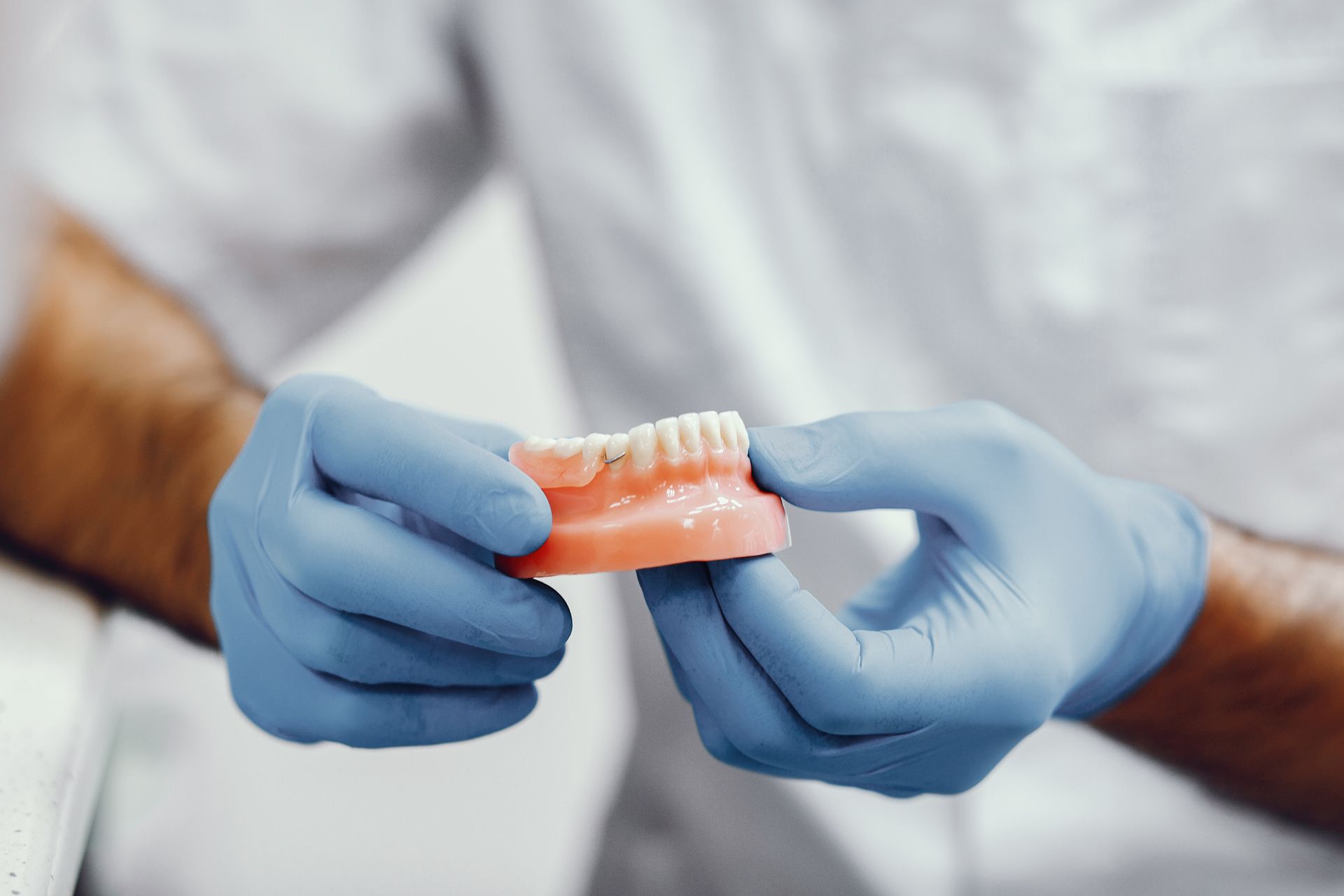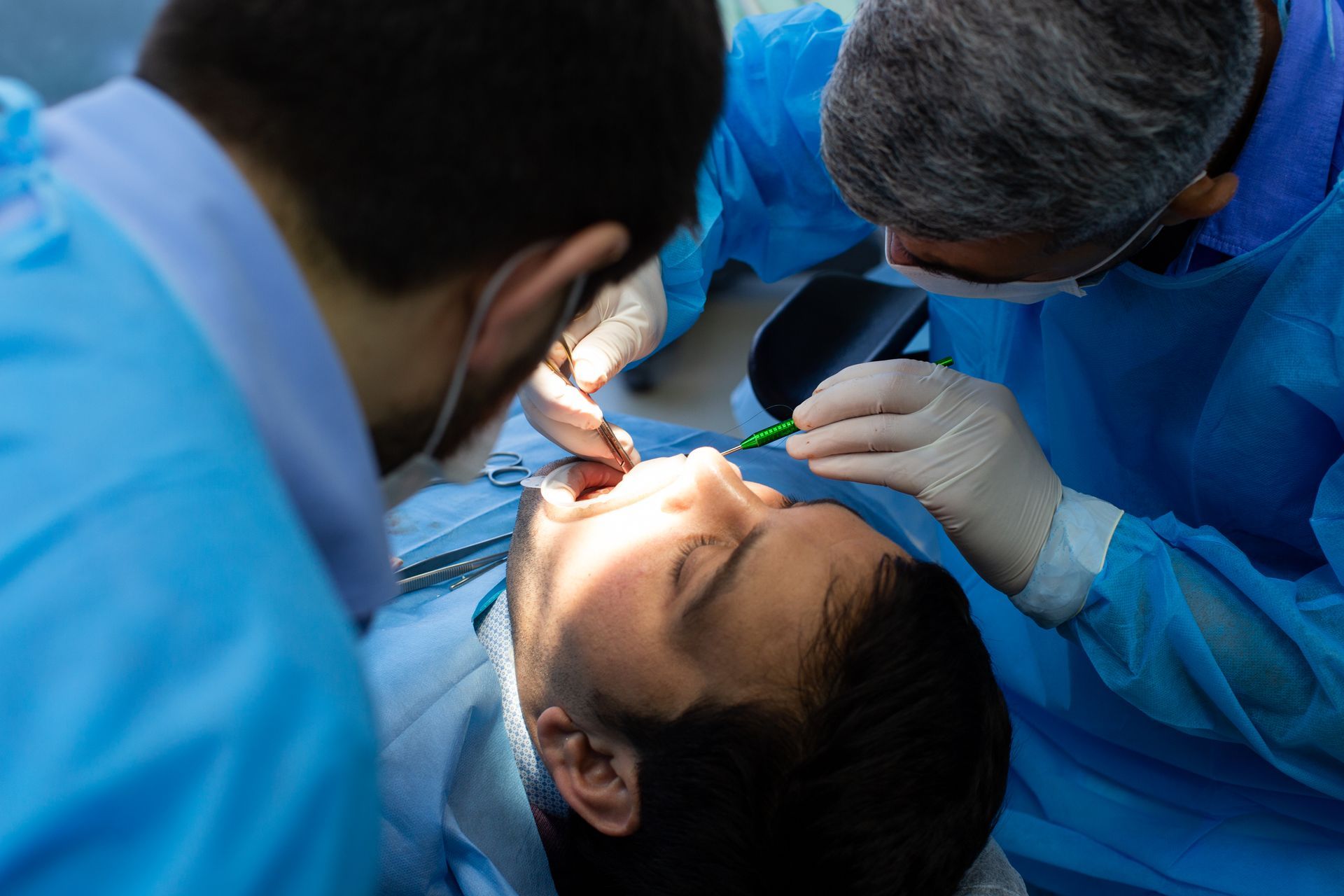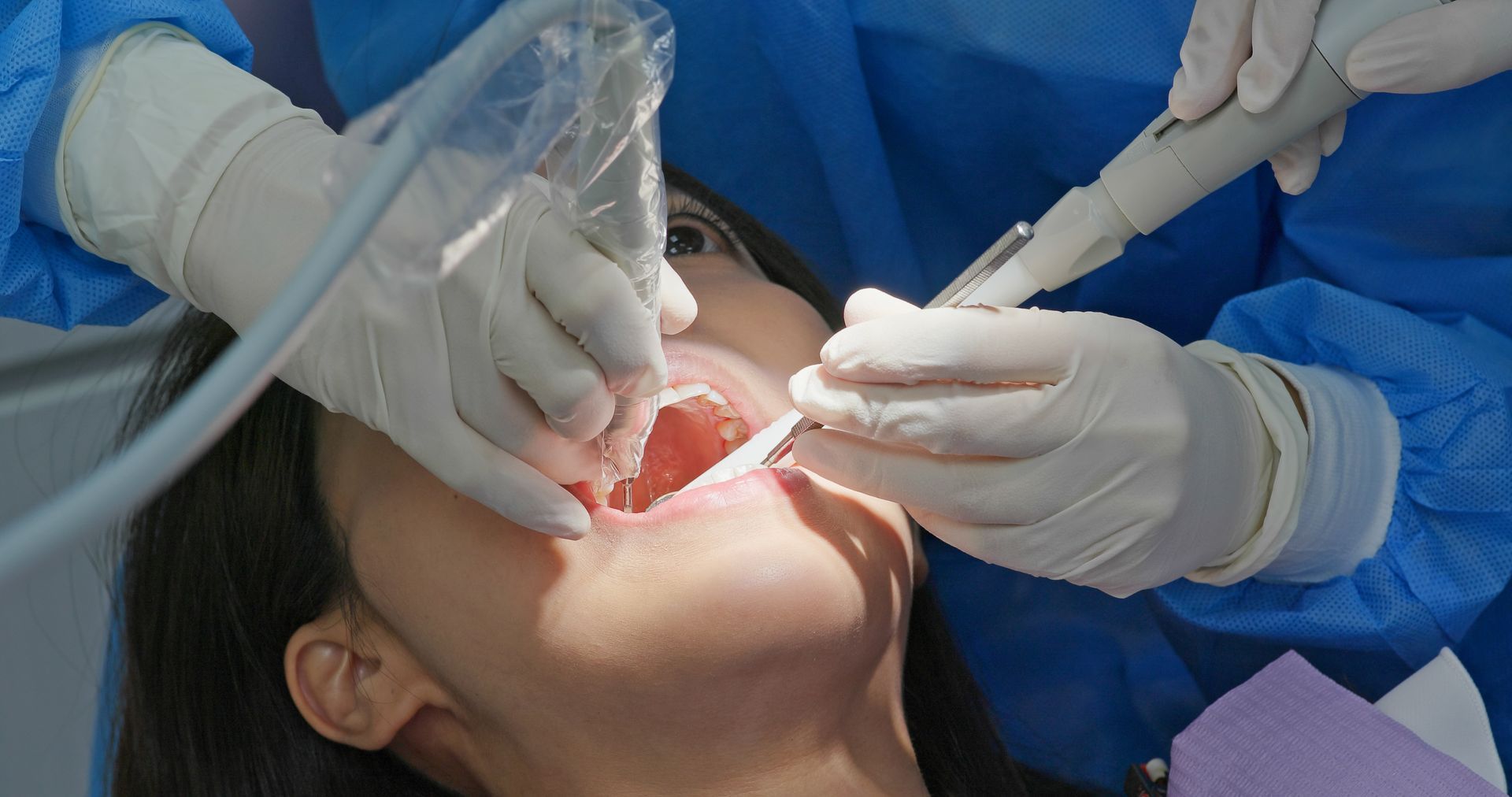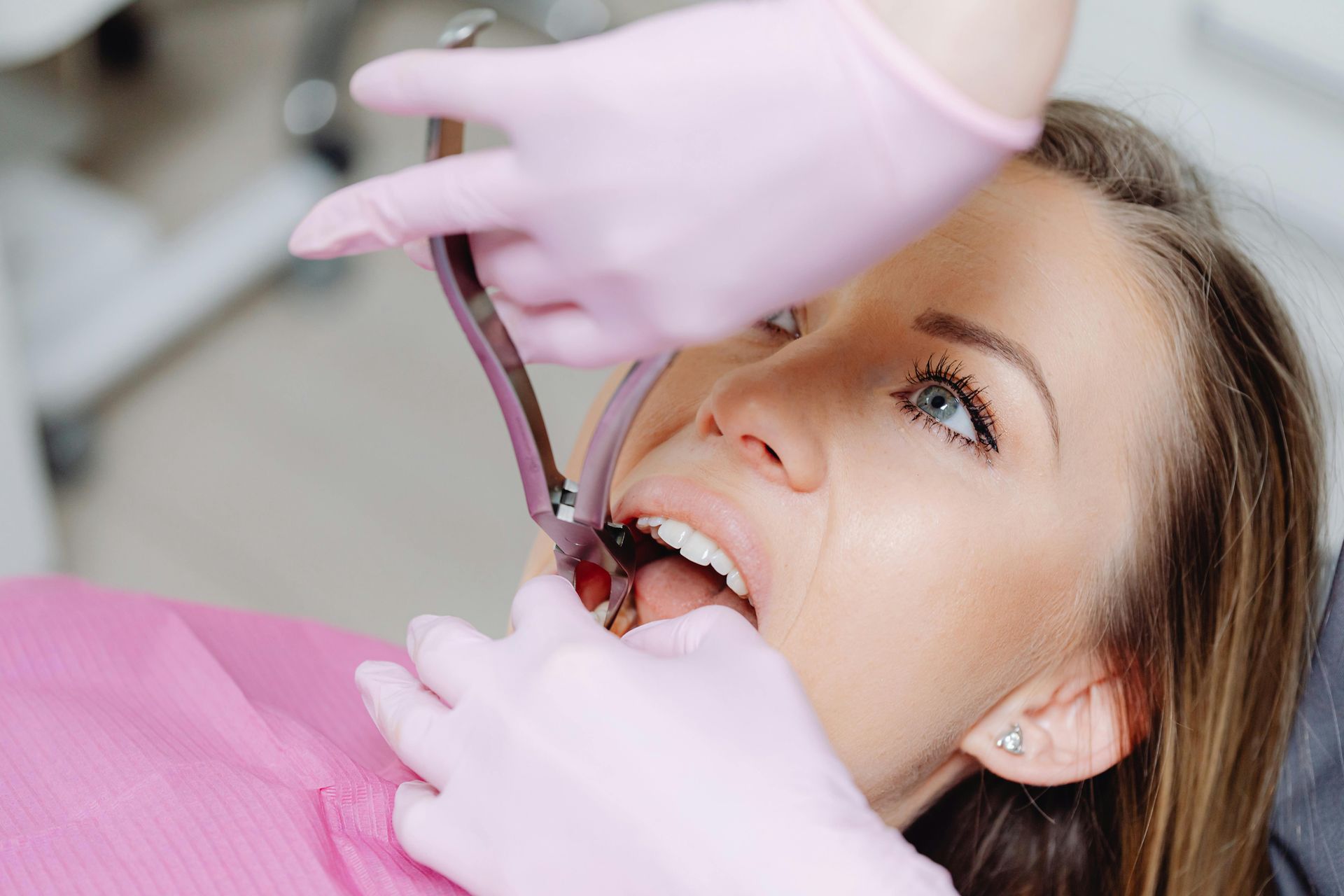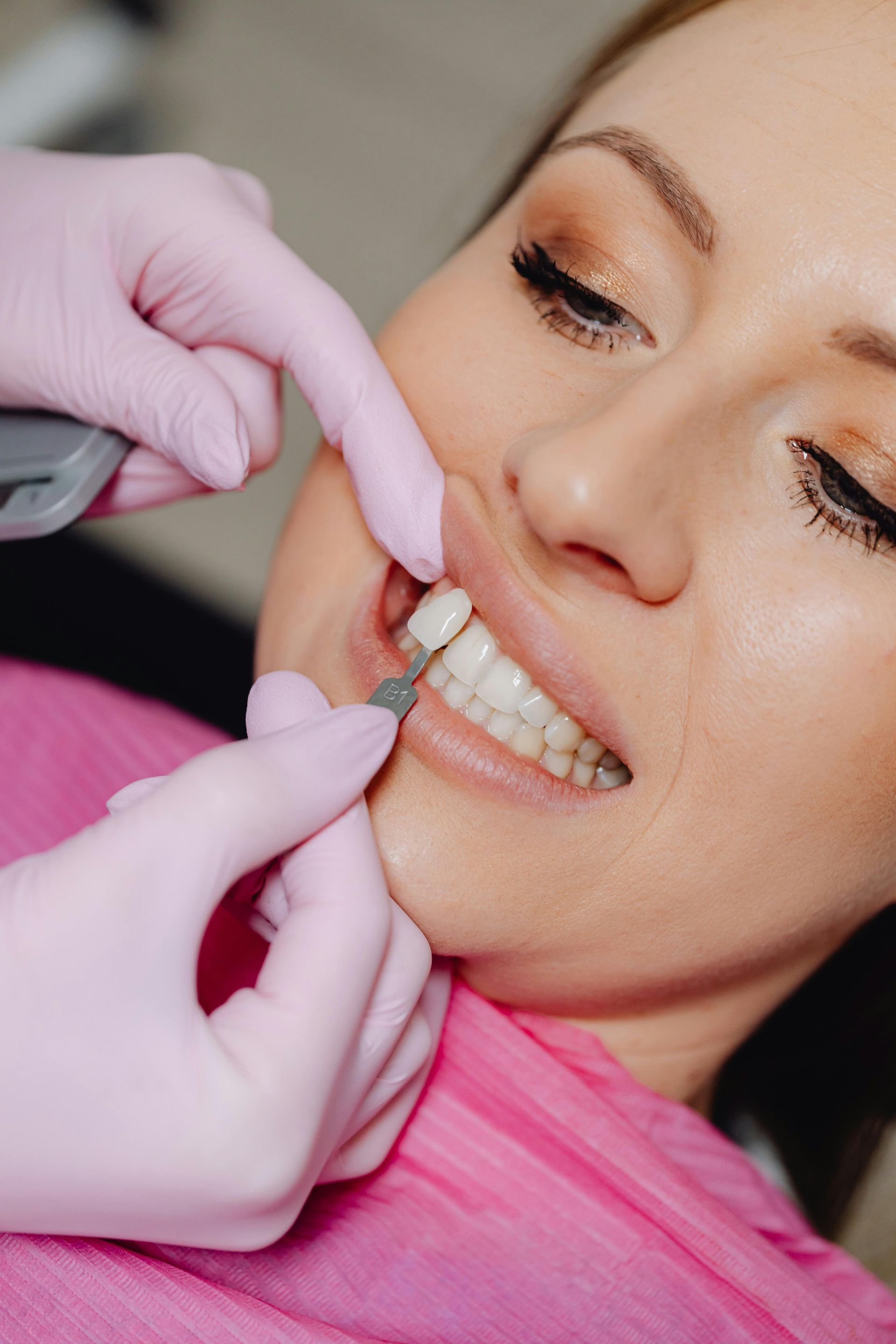Gum Disease: Causes, Symptoms, and Treatment
Maintaining good oral hygiene is essential to preserving the health of your teeth and gums. While most people focus on brushing and flossing to prevent cavities,
gum disease is an equally important concern.
Gum disease, also known as
periodontal disease, can lead to significant oral health problems if left untreated. At Meyer Family Dental in West Haven, UT, we are committed to educating our patients about the
causes, symptoms,
and treatments of gum disease. In this blog post, we will cover everything you need to know about
gum disease and provide actionable steps you can take to protect your oral health.
What is Gum Disease?
Gum disease, or periodontal disease, is an infection of the gums caused by bacteria in dental plaque. Plaque removal is essential because plaque is the sticky film that forms on teeth when food particles and bacteria accumulate. Over time, if not removed through brushing and flossing, this plaque hardens into tartar, creating an environment where harmful bacteria thrive. These bacteria attack the gum tissues, leading to inflammation, bleeding, and other gum disease symptoms.
Gum disease comes in two primary stages: gingivitis and periodontitis.
- Gingivitis is the initial phase of gum disease, where the gums become inflamed. It’s a reversible condition with proper dental care.
- Periodontitis is the advanced stage of gum disease. It affects not only the gums but also the bones and tissues supporting the teeth, potentially leading to tooth loss if untreated.
Understanding
gum disease's progression is critical, as early intervention can prevent the severe consequences of advanced
periodontal disease.
Common Causes of Gum Disease
Gum disease can be caused by a variety of factors, many of which are preventable. Here are some of the most common causes:
- Poor Oral Hygiene: The most significant cause of gum disease is inadequate oral hygiene. Failing to brush and floss regularly allows plaque to build up on the teeth and gums, which leads to inflammation and infection over time.
- Smoking and Tobacco Use: Smoking not only increases the risk of gum disease but also reduces the chances of successful treatment. Tobacco products weaken the immune system, making it harder for the body to fight off gum infections.
- Hormonal Changes: Hormonal fluctuations during pregnancy, menstruation, or menopause can increase gum sensitivity and make the gums more prone to infection.
- Genetics: Some individuals are genetically predisposed to gum disease. If gum disease runs in your family, you may have an increased risk of developing the condition.
- Diabetes: People with diabetes are more prone to infections, including gum disease. Uncontrolled blood sugar levels can also worsen gum disease.
- Medications: Certain medications, such as those that reduce saliva flow, can increase the risk of gum disease. Saliva helps protect the gums by washing away food particles and bacteria.
Understanding these risk factors can help individuals take preventive measures to reduce their likelihood of developing gum disease.
Symptoms of Gum Disease
Recognizing the gum disease symptoms early is crucial to preventing further damage to your gums and teeth. Symptoms of gum disease frequently involve:
- Red, Swollen Gums: Healthy gums should be firm and have a pinkish hue. Red, swollen, or tender gums are often the first sign of gingivitis, the earliest stage of gum disease.
- Bleeding Gums: Gums that bleed easily, especially when brushing or flossing, are a clear indication of inflammation and gum disease.
- Persistent Bad Breath: Chronic bad breath, or halitosis, can result from the buildup of bacteria in the mouth and is a common symptom of gum disease.
- Receding Gums: As gum disease progresses, the gums may start to pull away from the teeth, causing the teeth to appear longer than usual.
- Loose or Shifting Teeth: In advanced stages of gum disease, the supporting bone and tissue structures weaken, which can lead to loose teeth or even tooth loss.
- Painful Chewing: Pain while chewing or eating can also be a symptom of gum disease, particularly in the more advanced stages.
If you experience any of these
gum disease symptoms, it is essential to schedule an appointment with your dentist as soon as possible to assess your
gum health and prevent further complications.
Treatment Options for Gum Disease
The approach to gum disease treatment depends on how advanced it is. Early intervention can often reverse gum disease or significantly slow its progression.
- Professional Cleaning (Scaling and Root Planing): In the early stages of gum disease, professional dental cleaning may be enough to remove plaque and tartar. Scaling removes plaque from the surface of the teeth, while root planing smooths the tooth roots to help the gums reattach to the teeth.
- Antibiotics: In cases where bacteria have deeply infected the gums, antibiotics may be prescribed to help eliminate the infection.
- Surgical Treatment: For advanced gum disease, surgery may be necessary. Procedures such as flap surgery (pocket reduction surgery) can remove tartar from deep pockets in the gums, and bone grafts may be needed to repair damaged bone.
- Laser Therapy: Some dental practices use lasers to remove bacteria and infected tissue, promoting faster healing and reducing discomfort.
At Meyer Family Dental, we offer a range of treatment options for gum disease, ensuring that each patient receives the appropriate care for their unique situation.
Preventing Gum Disease
The best way to prevent gum disease is to practice good oral hygiene and make regular dental visits. Here are some tips to help you protect your gums and maintain a healthy smile:
- Brush Twice a Day: To maintain oral health, brush your teeth twice daily with a soft-bristled toothbrush and fluoride toothpaste. Ensure thorough cleaning along the gumline to eliminate plaque.
- Floss Daily: Flossing removes plaque and food particles from between the teeth and under the gum line, areas that brushing alone cannot reach.
- Use Antimicrobial Mouthwash: An antimicrobial mouthwash can help reduce plaque and control gum disease.
- Visit Your Dentist Regularly: Regular dental checkups and professional cleanings are vital for preventing gum disease. Your dentist can remove plaque and tartar buildup that you may have missed at home.
- Quit Smoking: Smoking is one of the most significant risk factors for gum disease. Quitting smoking is a crucial step in preventing gum disease and enhancing your overall oral health.
By following these
preventive measures, you can significantly lower your chances of developing
gum disease and keep your
gums healthy.
Contact Meyer Family Dental Roy Utah for Gum Disease Treatment
At
Meyer Family Dental, we are dedicated to helping our patients maintain healthy teeth and gums. If you’re experiencing symptoms of gum disease or simply need a checkup, don’t hesitate to reach out to our office in West Haven, UT. We provide
dental examinations and cleanings,
oral surgery,
root canals,
extractions, and
more. Our skilled team offers personalized care designed to meet your specific needs. Call us today at
(801) 731-5600 to schedule an appointment and take the first step toward a healthier smile. Your oral health is our top concern, and we’re dedicated to assisting you in achieving and maintaining it.
FAQs
Can gum disease be reversed?
Yes, in its early stage (gingivitis), gum disease can be reversed with proper oral hygiene and professional cleanings. Once it progresses to periodontitis, it cannot be fully reversed, but it can be managed with treatment.
How often should I visit the dentist to prevent gum disease?
It's advisable to see your dentist for checkups and cleanings twice a year. If you are at a higher risk for gum disease, your dentist may recommend more frequent visits.
Is gum disease painful?
Gum disease is not always painful in its early stages, which is why many people don’t realize they have it. However, advanced gum disease can cause pain, especially when chewing.
Can children get gum disease?
Yes, while gum disease is more common in adults, children can develop gingivitis, especially if they have poor oral hygiene. Regular dental visits and proper brushing and flossing can prevent this.
What happens if gum disease is left untreated?
If left untreated, gum disease can progress to periodontitis, which can lead to tooth loss, gum recession, and damage to the bone that supports the teeth.

